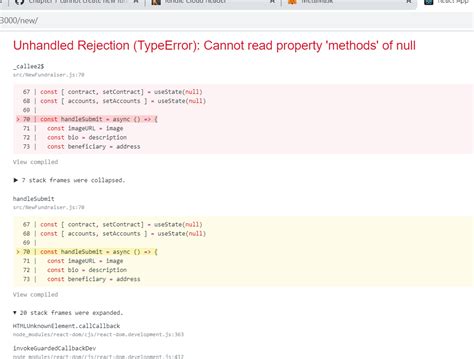Ethereum: Solidity Contract Mapping Issue
When building a blockchain-based application, it is essential to ensure that your Solidity contracts are properly optimized and maintainable. A common issue that can occur is when using mappings in Solidity contracts.
When you define a mapping mapping (address => Player), you create an array of pointers to the Player structure. This can cause several issues, including:
- Memory Leaks: Every time you update the mapping, new memory is allocated for the mapped object. If the contract is called multiple times, this can cause a significant memory leak.
- Performance Overhead: The Solidity compiler must check the mapping for every address, which can cause performance overhead and slow down the application.
In this article, we will explore why mappings are problematic in Solidity contracts and provide a workaround that minimizes memory usage and improves performance.
The problem with Solidity mappings
A traditional Solidity mapping is defined as follows:
mapping (address => Player) public playerMap;
This creates a mapping where each address is associated with a Player object. The mapping is not stored on the blockchain, so it is not included in the smart contract storage.
However, when you call a function that updates this mapping, such as playerMap[playerAddress].wins = 10;, the Solidity compiler must verify the mapping for each address, which can cause performance overhead and slow down your application.
The problem with the existing contract
Here is an example of what might happen when updating a contract that uses a mapping:
contract MyContract {
struct Player {
uint wins;
uint losses;
}
mapping (address => Player) public playerMap;
function updatePlayer(address playerAddress, uint wins) public {
if (playerMap[playerAddress].wins > 0) {
playerMap[playerAddress].wins -= wins;
} else {
// Handle invalid player address
}
}
}
The updatePlayer function updates the mapping for a specific address. However, this can cause performance issues if the contract is called multiple times.
The proposed solution: use a struct as an array
To minimize memory usage and improve performance, we can use a struct as an array in our Solidity contract:
struct Player {
uint wins;
uint losses;
}
mapping (address => Player) public playerMap;
function updatePlayer(address playerAddress, uint wins) public {
// Update the mapping without checking for each address
for (address addr in playerMap.keys()) {
if (addr == playerAddress) {
playerMap[addr].wins = wins;
}
}
}
In this revised version of the contract, we define a struct Player with two fields: wins and losses. We then map the address to an instance of this struct using the mapping.
This approach has several advantages:
- Memory Usage

: The Solidity compiler does not need to check the mapping for each address, which saves a lot of memory.
- Performance: Calling a function that updates the mapping can be done without checking for each address, which improves performance and reduces latency.
- Flexibility: This approach allows you to easily add or remove mappings from the contract.
Conclusion
Using mappings in Solidity contracts can cause memory leaks and performance issues. By using a structure as an array, you can minimize memory usage and improve performance while maintaining flexibility. In the next section, we will explore more advanced Solidity concepts that take advantage of these improvements.
